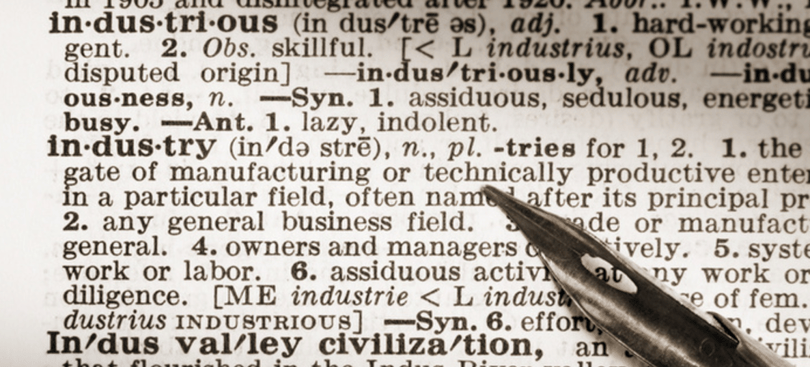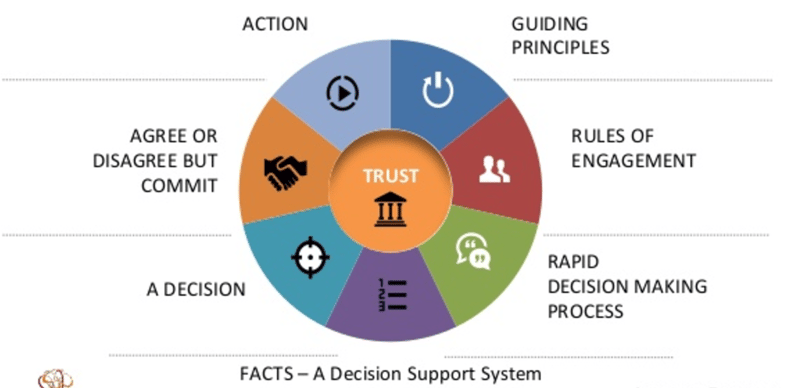BTOES From Home - SPEAKER ...
Courtesy of Nintex Pty's Paul Hsu, below is a transcript of his speaking session on 'Improve employee productivity during and post-COVID by ...
View our schedule of industry leading free to attend virtual conferences.
Each a premier gathering of industry thought leaders and experts sharing key solutions to current challenges.
Watch On-Demand Recording - Access all sessions from progressive thought leaders free of charge
from our industry leading virtual conferences.
The premier Business Transformation & Operational Excellence Conference. Watch sessions on-demand for free.
Use code: BFH1120
Delivered by the industry's most progressive thought leaders from the world's top brands.
Start learning today!
Our Operational Excellence Dictionary, featuring key principles, industries and resources.

Welcome to our A-Z of the main guiding principles of Operational Excellence. Click a link below for a full description of the principle/definition. If you'd like to submit a definition of your own, please click here.
What's the difference between Agile and Agility? Our contributor Andrew S. McCune states the following:
"What do these two words mean? A quick check in on the definition of these words.
agile, adjective, English: 1. marked by ready ability to move with quick easy grace <an agile dancer> 2. having a quick resourceful and adaptable character, <an agile mind>
agility, noun, English: 1. the quality or state of being agile, nimbleness, dexterity. <A gymnast whose agility on the parallel bars has won several medals>
Read more about Agile vs. Agility in Operational Excellence
Read more about Business Intelligence and Operational Excellence
Change Management (CM) refers to any approach to transitioning individuals, teams, and organizations using methods intended to re-direct the use of resources, business process, budget allocations, or other modes of operation that significantly reshape a company or organization. More and more, these processes are being integrated into achieving the goal of embedding a Culture of Operational Excellence within organizations, and are understood as a cornerstone of the Continuous Improvement journey.
Read more about Change Management as an Operational Excellence Principle
For companies practising Operational Excellence, there is a fine line to walk between streamlining to maximise efficiency, and quality of the product/service - a key example of this would be in the case of areas such as Customer Experience.
Simply put, the 'Customer Experience' marks the product of an interaction between an organization and a customer over the duration of their relationship.
Read more about Customer Experience & Operational Excellence Principles

Corporate culture is the collection of values, visions, missions, and day-to-day aspects of communication and operational goals that create the atmosphere that permeates and determines how employees work in their organization.
Read more about the Operational Excellence Principle of Culture TransformationC
Gemba (現場, also spelt less commonly as genba) is a japanese term meaning "the real place." Japanese police could refer to a crime scene as gemba, and TV reporters often refer to themselves as reporting live from gemba.
Read more about the Gemba Principles
Hoshin Kanri, also known as Policy Deployment, is another aspect of Lean that is designed to ensure the strategic goals of a business are driving progress and action - at every level.
More and more, innovation is becoming a necessary component of all Operational Excellence-focused Organizations. As with Agile, Innovation and a solid strategy for encouraging it allows companies to continuously adapt and change, rather than stagnating in the mid-range alongside their competitors.
Read more about Innovation ExcellenceThe Toyota Production system was a major precursor of Lean Manufacturing, founded on two conceptual pillars: 'Just-in-time' and 'Jidoka'. Jidoka, otherwise known as Automation with a Human Touch, was first built off the approach created by the founder of Toyota, Sakichi Toyoda and his son, Kiichiro Toyoda.

One of the most important tenets of kaizen is that big results come from many small changes accumulated over time. Continuous, incremental changes that take at every level from the shop floor to the c-level are credited for the success of Kaizen 'events'.
READ MORE: Our Top 10 Kaizen Books
Read more about Kaizen as an Operational Excellence Principle
Whilst there is no single definition of Lean Methodology, there are a number of key tools, concepts and principles that can round out our view of Lean process, production and thinking:
At heart, Operational Excellence is an element of organizational leadership that stresses the application of a numerous methodologies and tools, with a focus on the sustainable improvement of outstanding performance metrics.
Much of this management philosophy is based on earlier continuous improvement methodologies, such as Lean, Six Sigma, and the combined methodology of Lean Six Sigma. The focus of Operational Excellence goes beyond the traditional event-based model of improvement, toward a long-term change in organizational culture.
Read more about the core principles of Operational Excellence

According to the 'Baldridge Glossary' (2002) “the term ‘performance excellence’ refers to an integrated approach to organizational performance management that results in the three following outcomes:
1. Delivery of ever-improving value, to customers and stakeholders, that contribute directly to organizational sustainability;
2. Improvement of overall organizational effectiveness and capabilities
3. Organizational and personal learning.
Read more about Performance Excellence in Operational Excellence
Process Architecture is essentially a commonly understood, shared view of all the business processes that an organization may carry out in order to deliver a product or service to their customers and clients. As business capabilities expand and demands change, processes can become overly complex, garbled or disorganized as they are re-jigged and edited - the nature of a strong process architecture is to ensure these processes remain at their optimal state.
Read more about Process Architecture & Operational Excellence
Process Excellence is often confused with Operational Excellence - in fact, many online sources will conflate the two to the point that finding a seperate definition for Process Excellence can sometimes seem impossible. However, Process Excellence, as the name suggests, can be defined as focusing more heavily on the analytical, strategic aspects of Operational Excellence.
ARTICLE: What will Process Excellence look like in 2025?
Read more about Process Excellence
RAPID is a decision-making tool designed to help leaders get questions answered, and provide solid conclusions to discussions. This is done by mapping out every stage of the decision making proccess and identifying what is required for a final decision to be made, and made well.

Robotic Process Automation is transforming how companies maximise their efficiency across all industries. Using AI robots and software, businesses are able to replicate the behaviours of a human worker with a near 0% defect rate. However, for companies practising Operational Excellence, there is a fine line to walk between streamlining to maximise efficiency, and quality of the product/service - for example, in the case of areas such asCustomer Experience
Welcome to BTOES Insights, the content portal for Business Transformation & Operational Excellence opinions, reports & news.
Insights from the most progressive thought leaders delivered to your inbox.
Insights from the world's foremost thought leaders delivered to your inbox.
Being a hero is all about creating value for others. Please invite up to 5 people in your network to attend this premier virtual conference, and they will receive an invitation to attend.
If it’s easier for you, please enter your email address below, and click the button, and we will send you the invitation email that you can forward to relevant people in your network.
View our schedule of industry leading free to attend virtual conferences. Each a premier gathering of industry thought leaders and experts sharing key solutions to current challenges.
View Schedule of EventsWatch On-Demand Recording - Access all sessions from progressive thought leaders free of charge from our industry leading virtual conferences.
Watch On-Demand Recordings For FreeDelivered by the industry's most progressive thought leaders from the world's top brands. Start learning today!
View All Courses NowThe premier Business Transformation & Operational Excellence Conference. Watch sessions on-demand for free. Use code: BFH1120
Watch On-DemandInsights from the most progressive thought leaders delivered to your inbox.
Insights from the world's foremost thought leaders delivered to your inbox.
Being a hero is all about creating value for others. Please invite up to 5 people in your network to also access our newsletter. They will receive an invitation and an option to subscribe.
If it’s easier for you, please enter your email address below, and click the button, and we will send you the invitation email that you can forward to relevant people in your network.
Courtesy of Nintex Pty's Paul Hsu, below is a transcript of his speaking session on 'Improve employee productivity during and post-COVID by ...
Read this article about HP, Best Achievement in Operational Excellence to deliver Digital Transformation, selected by the independent judging panel, ...
Read this article about BMO Financial Group, one of our finalists, in the category Best Achievement in Operational Excellence to deliver Digital ...
Read this article about Cisco, one of our finalists, in the category Best Achievement of Operational Excellence in Internet, Education, Media & ...